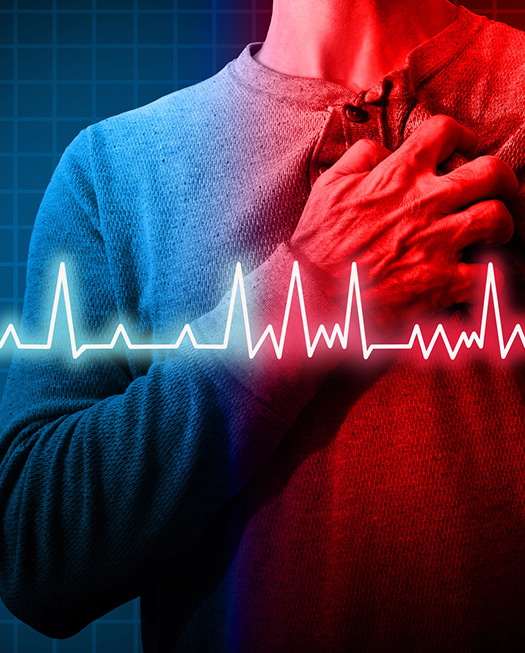Sometimes it might be subtle and you might not even notice, while other times you can feel the difference in your heart beating. An arrhythmia can sometimes be transient, such as from caffeine or other stimulants, while others can be problematic and can cause severe health issues. At Cardiology of Hudson Valley, we want to help you understand your arrhythmia, determine if it is something that needs attention, and then look at the best approach to treating it for the long term. This is caused when the electrical signals that tell your heart when to beat aren’t working properly, causing a heart to beat faster or slower, or with an irregularity. Most arrhythmias fall into one of two categories: a fast heartbeat or slow heartbeat. Contact us today to schedule a time to speak with our cardiologist about your heart health.
What Is Too Fast or Too Slow?
Our heart naturally adjusts to the stress that is put on our bodies, from sleeping to exercising and everything in between. This is normal and to be expected, but when those extremes happen at the wrong time, especially if those extremes are sustained, then it can lead to other health problems. Tachycardia is a fast heartbeat that exceeds 100 beats per minute, while bradycardia is a slow heartbeat that is below 60 beats per minute.
There can be several different causes for tachycardia in a person, including atrial fibrillation, atrial flutter, ventricular fibrillation, and more. With different causes or sources of elevated heart rate comes different remedies that can help manage the symptoms. Treatment methods can include medications that can help, electrical stimulation to recalibrate the heart, as well as medical procedures that will eliminate abnormal tissues.
Can Arrhythmias Be Prevented or Managed Naturally
Many people would rather deal with their health issues naturally if possible, though this does involve a change of habits, which can be difficult. Ensuring that patients maintain a healthy body weight, get regular exercise, and eat healthy, can all help to prevent and manage arrhythmias, but in some cases other interventions are encouraged or needed to help prevent the body from getting further damaged. Speaking with our cardiologist can provide you with invaluable information for your individual needs.
If you are wanting the assistance of an experienced cardiologist in blank, make the call to Cardiology of Hudson Valley. Dr. Peter Sayegh is committed to prioritizing your heart health and overall well-being, from preventative care to life-saving treatments. If you are having an emergency call 911, otherwise you can contact us today to schedule a time to discuss your heart issues.

